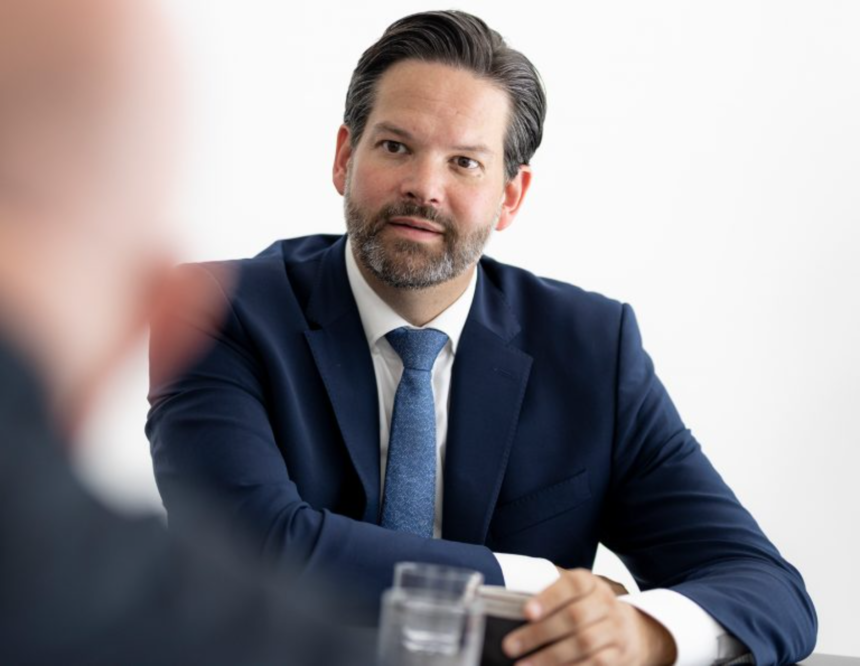The next government must have a clear agenda for the Kosovo-Serbia dialogue process, says Austrian MEP Lukas Mandl.
According to him, this issue should be a priority for both the new executive and legislative branches after the national elections on February 9.
Speaking about the meetings between Pristina and official Belgrade, he emphasizes that “it is important to bring something to the table of negotiations.”
“I think it is always important in such a dialogue process, in a future negotiation perhaps, that each side brings something to the table. Therefore, if you put something on the table, you will have the opportunity to have a say in the agenda of the discussion. It is important not just to wait for what the EU representatives will bring to the table, if there’s anything at all,” he says.
“It’s not just important to wait for the other side to put something on the table, but it’s important for you to bring something yourself. This should be treated as one of the priorities of the next government, of the new parliament in the Republic of Kosovo, to have a clear agenda, clear steps on how to resolve issues and address the unresolved matters. This is the approach I would recommend to everyone in Kosovo, regardless of whether they are in opposition, in power, or who will form the new government,” he adds.
Following the parliamentary elections on February 9, Mandl expects local institutions to undertake reforms in Kosovo.
“I can only say that every government will need to build bridges everywhere in the world and will need to undertake reforms within the country for the common good, for the benefit of the people. I also think that in every political party in Kosovo, there are trustworthy people, and in the Assembly of the Republic of Kosovo, there are newly elected deputies who are trustworthy and capable, and they will find excellent solutions for the future. This is my belief in this new state of Europe and in its people, who are democratically elected,” he states.
Mandl is optimistic that the EU’s High Representative for Foreign Affairs and Security Policy, Kaja Kallas, will engage in positive dialogue between Kosovo and Serbia.
“I think that the new European Commission and the High Representative for Foreign Affairs of the European Union, Kaja Kallas, have taken very positive steps toward a better dialogue. She takes this issue very seriously. I understand that she knows there is an equal playing field; no state is more important than another,” he says.
“It’s something you might have had the impression was the case for the former EU representatives who were active here in the region, especially in the dialogue between Kosovo and Serbia. So, I hope the new European Commission will be better at managing this dialogue, and they can encourage both sides, the Kosovo side and the Serbian side, to truly engage in positive dialogue for the well-being of their citizens and for their future in the European Union.”
“This should be the future for everyone in the six Western Balkan states, as well as for Kosovo and Serbia. And for that reason, political representatives of both countries must conduct a proper dialogue and take the necessary steps in a more accelerated pace,” Mandl concludes.
He is also optimistic about the removal of the European Union measures against Kosovo imposed in June 2023.
“From the beginning, I have been against these measures against the Republic of Kosovo, the newest state in Europe. I take into account the entire situation, considering the form of the Republic of Kosovo, the suffering of the people in the past, and the long process of European integration, which seems to have been stalled at times. In my opinion, it is meaningless to impose measures against the Republic of Kosovo.”
“That’s why I have been parliamentary against these measures, but I think more and more in the European Commission and especially in the European Parliament, there is much more support for the removal of these sanctions, these measures,” he concludes.







